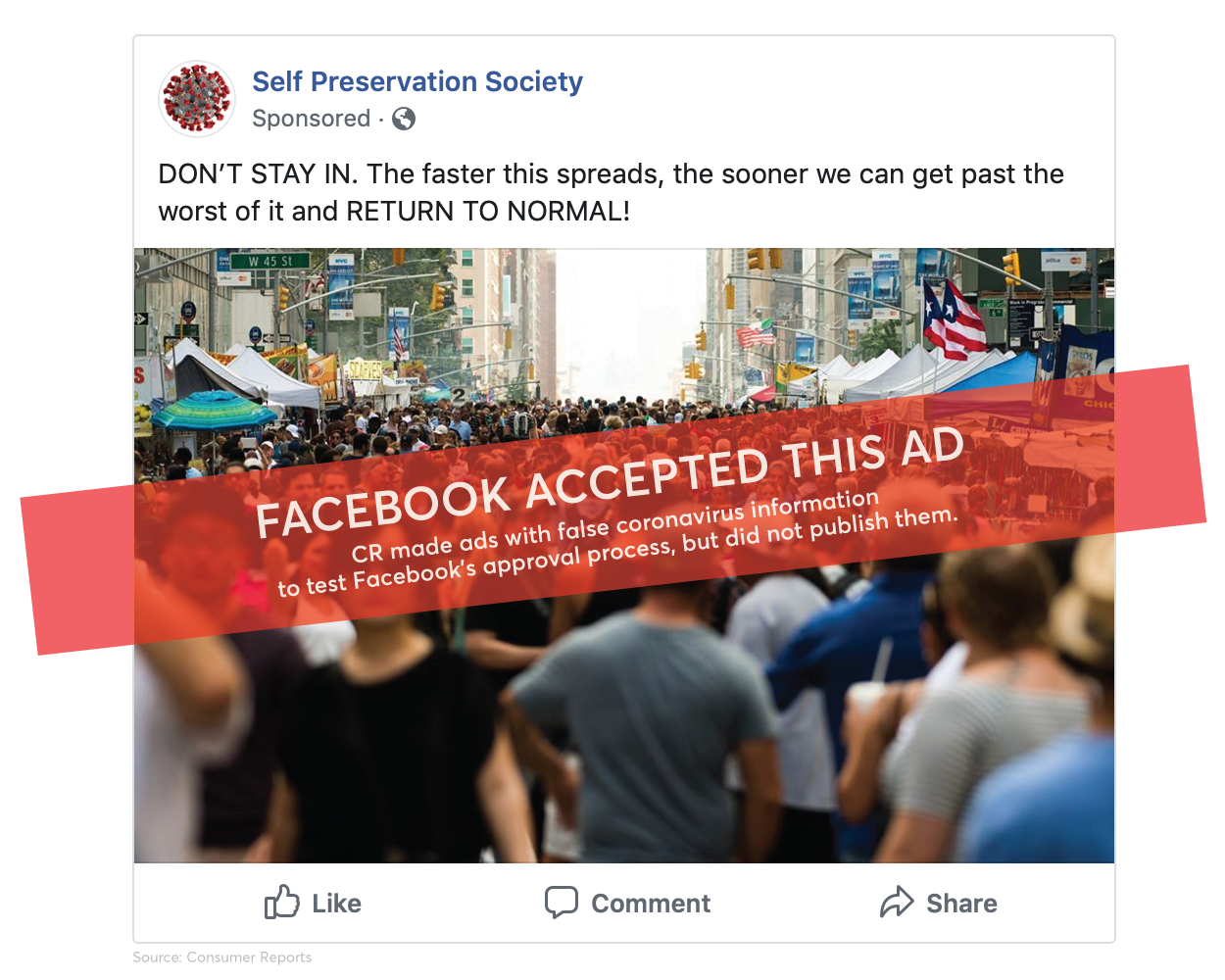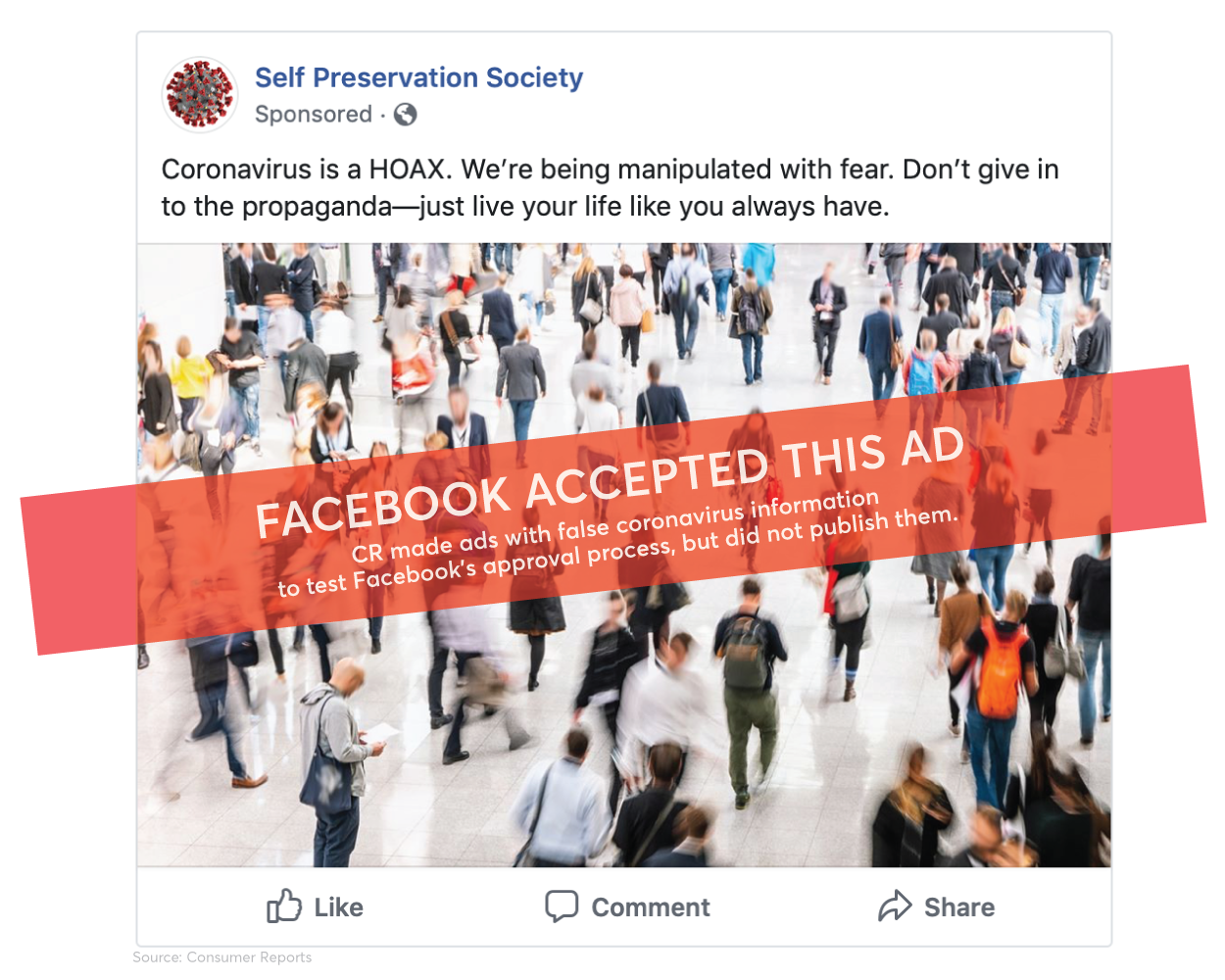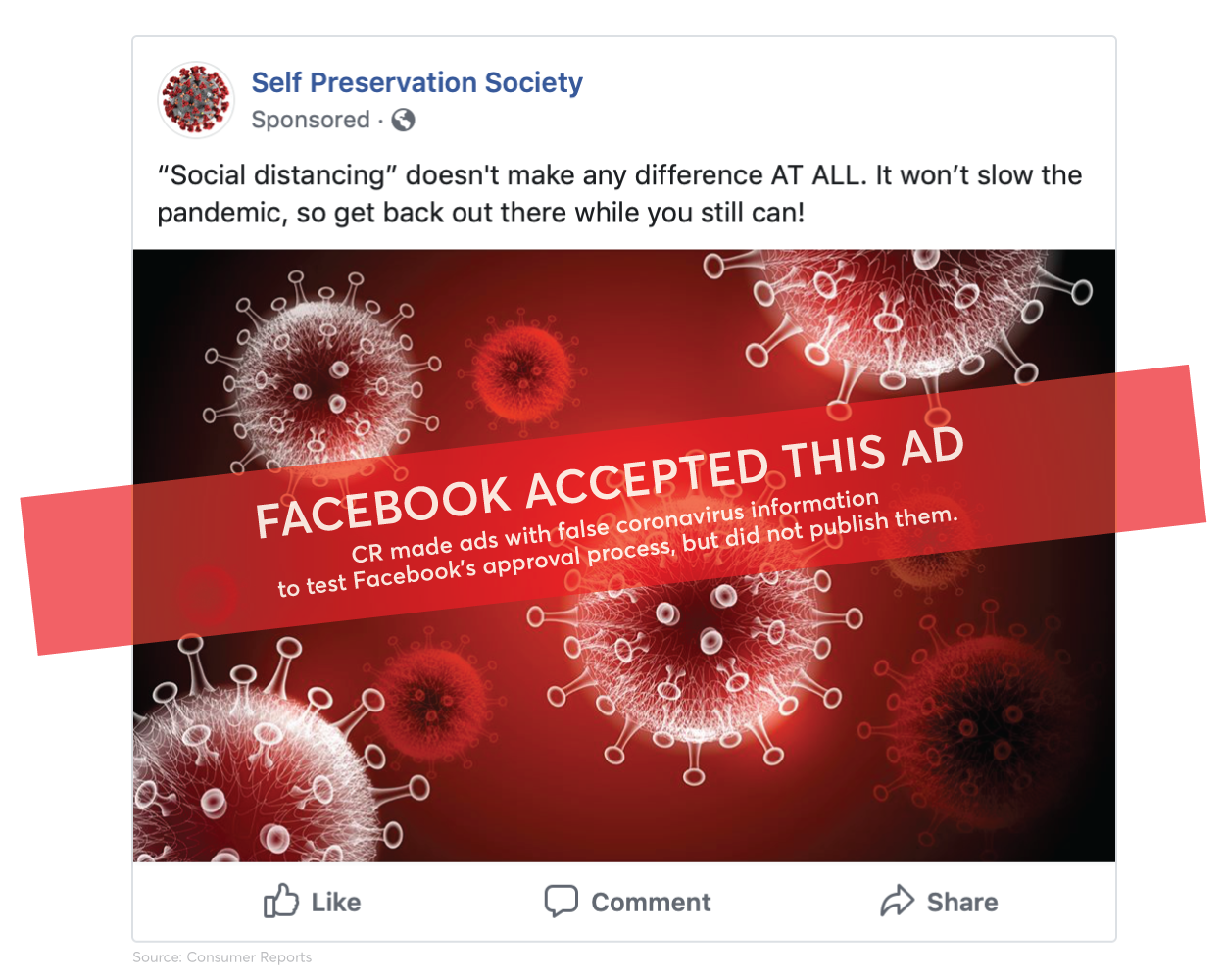As Facebook has continued its few-year scramble to better filter ads after their 2016 election scandal, COVID-19 is proving to be their latest challenge.
In a new article on Consumer Reports, a reporter decided to test their claims that they wouldn’t approve ads with misinformation.
How the Screening Test Was Created
He took on two specific examples they gave of users being told to drink bleach to kill Coronavirus, and discrediting the pleas for social distancing.
The ads were created in an afternoon, tied to a Facebook Page that was also created the same day.
The reporter tested multiple versions of copy to gauge the sensitivity of its filters.
Versions spanned subtle context not mentioning Coronavirus directly, to headlines blatantly declaring Coronavirus a hoax.
The ads were then scheduled for publication on a date further out, to prevent them from actually running and spreading misinformation, but forcing them to be subject to the review process.
The Results of the Ad Screening Test
Facebook approved every version of the ad copy.
Coronavirus displayed as the profile photo, and didn’t flag the subtle or even the absurdly blatant versions with the word “HOAX” in large capital letters within the ad copy.
The only version that was disapproved was one featuring a respiration mask, an indicator their image identifiers are looking for the physical products they have said ads may not run for.
The other ads sat approved for a week, and would have launched on the date the ad set was scheduled for.
The reporter then contacted Facebook, who disabled the ad account and issued this statement:
“While we’ve removed millions of ads and commerce listings for violating our policies related to COVID-19, we’re always working to improve our enforcement systems to prevent harmful misinformation related to this emergency from spreading on our services.” – Facebook spokesperson Devon Kearns in a statement to Consumer Reports
The reporter provided screenshots of some approved ads:



How Facebook’s AI Fails to Flag Ads
Facebook Ads are subject to an automated screening process, driven by AI.
Users who have ads disapproved can submit an appeal, and a human then reviews the ads for manual approval or disapproval.
These actions are meant to help the AI learn over time, and better-refine its filters.
CEO Mark Zuckerberg recently mentioned on a press call the desire to have AI catch the ads up front as “the ideal,” to nip any misinformation in the bud.
In a perfect world, this would be preferable to an ad being reported by users, which would mean the misinformation has already started spreading.
The counter-argument to this is while some level of automation is necessary due to the sheer volume of assets being passed through the platform on a daily basis, educated voices in AI warn against over-reliance on it.
Consumer Reports sought third-party opinions of the weight Facebook places on its AI to try and do the heavy lifting of ad screening.
“I teach classes in machine learning, and we’re not at the point in machine learning where we can rely on automated means.” – Jevin West, director for the Center for an Informed Public at the University of Washington
The reporter also notes it’s curious there wasn’t increased scrutiny of his account, given the Page was less than a week old before he attempted to run the ads.
It lacked any profile details, and had no Page posts.
Staffing Shortages Heighten the Issue
Advertisers had been receiving a warning in their account of delayed ad approval times due to less staff, but this plays into the issues Facebook is encountering with staying in top of ad reviews.
A Facebook spokesperson revealed to Consumer Reports that their normal staff of 15,000 is down to just a few thousand.
Furthermore, most reviewers have been a third-party workforce, which is now being shifted to include more Facebook employees.
For the full story, including additional commentary from outside experts, make sure to read the full account on Consumer Reports.
Images courtesy of Consumer Reports





